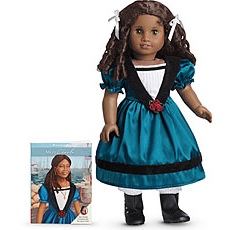May is Mental Heatlh Month, so I thought a discussion of mental health would be a timely topic. One thing I have learned over my 30-plus years in the field is that “mental health” can be scary topic for parents. I am not sure why there are such negative associations with mental health; we certainly don’t react negatively to physical or dental health. Perhaps part of the problem is that it can be hard to understand what mental health is. So let’s talk a little about mental health and how we can promote it in our children.First, let’s talk about what mental health is not. It is not just the absence of problems. So much of what gets promoted as mental health is really the avoidance or prevention of problems. We have bullying prevention, substance abuse prevention and suicide prevention. Although these programs are valuable in their own right, the absence of these and other challenges is not the same as mental health.
So what is mental health? Especially for children, mental health depends on feeling safe and protected. Given that important foundation, in 1999 the U.S. Department of Health and Human Services defined mental health as consisting of three things: 1) productive activities, 2) fulfilling relationships and 3) the ability to adapt to change and cope with adversity. So what does this mean for us in promoting the mental health of our children?
Productive activities
All of us, including our children, need to feel both competent and that we are making a meaningful contribution. Something we can do is help our children find something that they are good at and then make sure that they have plenty of opportunities to do it. It doesn’t need to be something big, and our kids don’t need to be the best; they just need to have something positive that they feel good about and that can serve as the foundation for healthy self-esteem. It is also important that this area of competence have value to other people so that our children feel like they are making a real contribution.
Fulfilling relationships
Having healthy, fun, productive relationships with adults and peers is critical to mental health. Encourage your child to be involved in clubs and activities, youth groups, scouts and the like so that they have structured time with other youth and good adult role models.
Ability to cope with change
This is, of course, one of the key components of resilience, the focus of this column and my department’s work. This is too broad a topic to discuss in one paragraph, but I was struck by a comment I once read that “Youth can get through any difficulty if they have somewhere to walk to and someone to walk with.”
So this May, let’s think about how we can ensure that our children have opportunities to develop their own mental health through productive activities, fulfilling relationships, and effective coping. By the way, these same three goals will promote our mental health as well.
Added note for parents who are worried about their children’s mental health: If you are concerned about a possible mental health issue or challenge with your child, please do not be embarrassed or hesitant to seek help from qualified professionals. A large number of children struggle with mental health issues and effective help is available. We shouldn’t let our fears or prejudices keep us from seeking the help that our children need. If you are concerned about your child, a good place to start is by talking to the professionals at your child’s school.
 Paul LeBuffe is the director of the Devereux Center for Resilient Children in Villanova, PA, whose mission is promoting the resilience of all children and the adults who care for them; he will be contributing to this blog on a monthly basis. More information on promoting resilience can be found at the center’s website.
Paul LeBuffe is the director of the Devereux Center for Resilient Children in Villanova, PA, whose mission is promoting the resilience of all children and the adults who care for them; he will be contributing to this blog on a monthly basis. More information on promoting resilience can be found at the center’s website.






